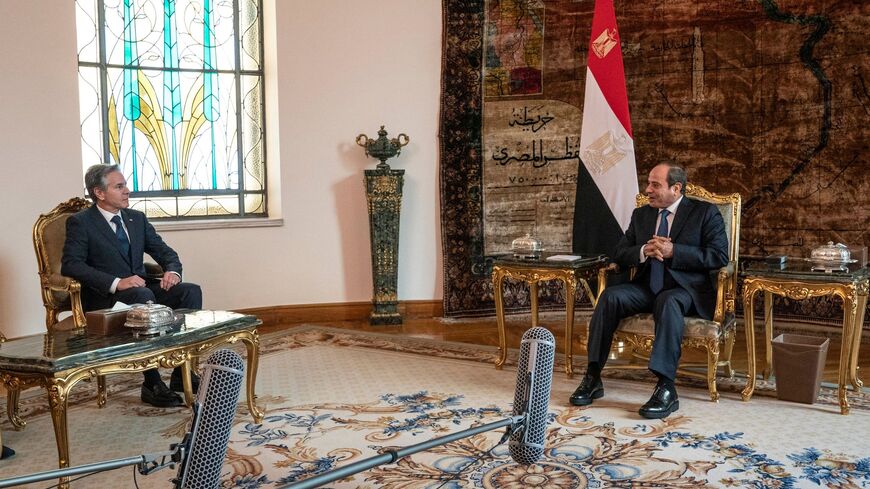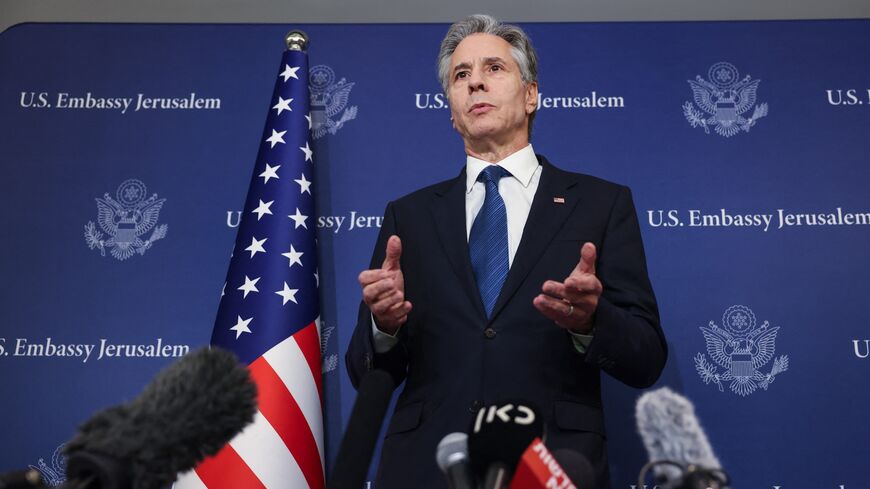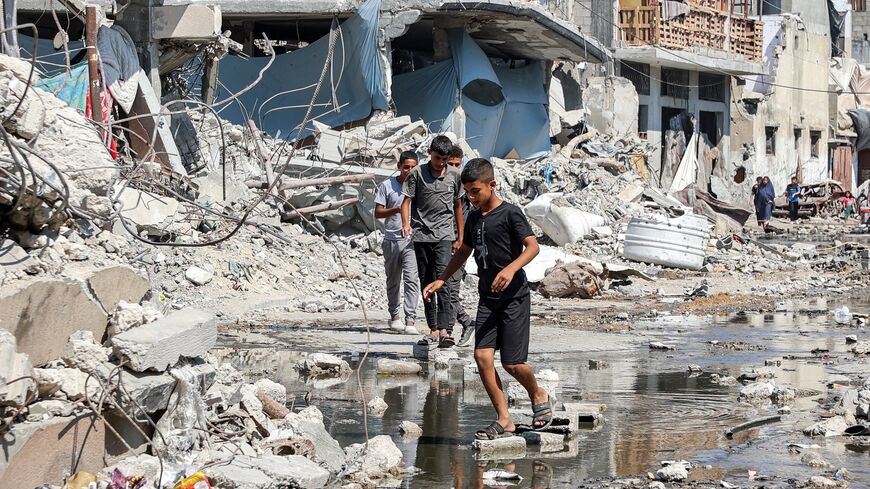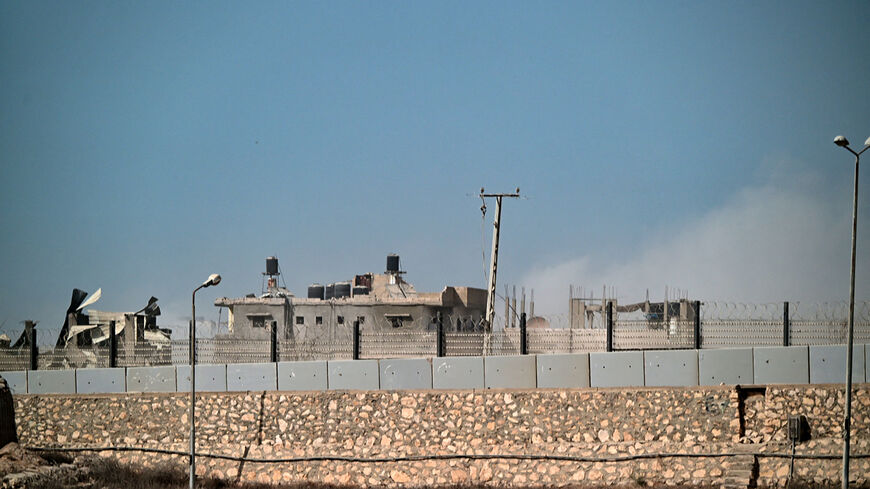US says Gaza cease-fire talks in 'end game' with new proposal
Secretary of State Antony Blinken will travel to Israel Saturday ahead of cease-fire negotiations that are set to resume in Cairo next week.

WASHINGTON — The Biden administration voiced cautious optimism that a new cease-fire proposal presented to Israel and Hamas on Friday can get the deal over the finish line, but a statement from the Palestinian militant group has tempered hopes for a breakthrough.
After cease-fire talks concluded in Doha Friday, the United States, Egypt and Qatar said in a joint statement that negotiations would resume before the end of next week in Cairo over a proposal that “builds on areas of agreement over the past week.”
A senior Biden administration official briefing reporters on Friday afternoon described the negotiations as “back on track” after months of deadlock. The official described the bridging proposal put forward Friday as similar to the Israeli offer from late May “with some clarifications, based upon subsequent discussions, and some of the details and implementation.”
"What is on the table now basically bridges every gap,” the official said, without detailing what’s included in the latest proposal. “There was a consensus between all three leaders that this process, which obviously has been ongoing for months, is now in the end game.”
The talks got underway Thursday as the Palestinian death toll from the 10-month war soared past 40,000, according to the Gaza Health Ministry, which does not distinguish between civilians and combatants.
Leading the two days of discussions in Doha were CIA Director William Burns, Mossad Director David Barnea, Qatari Prime Minister Sheikh Mohammed bin Abdulrahman bin Jassim Al Thani and Abbas Kamel, director of Egypt's General Intelligence Service. Also in attendance were the head of Israel’s Shin Bet security service, Ronen Bar, and the Israeli military hostage coordinator, Nitzan Alon.
Hamas refused to participate but its Doha-based political members were briefed by Qatari and Egyptian officials throughout the two days of talks. A senior Hamas official said in a statement Friday that the bridging proposal is “aligned” with Israel’s demands.
“We have confirmed once again that the occupation does not want to reach an agreement and continues to evade and obstruct it, and insists on adding the new conditions it announced to obstruct the agreement,” read the statement. “Hamas calls on the mediators to pressure the Israel government and oblige it to implement what was agreed upon.”
President Joe Biden discussed the developments Friday in separate phone calls with the emir of Qatar, Sheikh Tamim bin Hamad Al Thani and Egyptian President Abdel Fattah al-Sisi.
“I don’t want to jinx anything,” Biden told reporters in the Oval Office. "We're not there yet, but we're close.”
Secretary of State Antony Blinken is scheduled to depart Saturday for Israel as part of the administration’s diplomatic push for a Gaza cease-fire. The trip will be his ninth to the region since Hamas’ Oct. 7 attacks.
Hanging over the latest round of negotiations was Iran’s promised retaliation for the assassination of Hamas leader Ismail Haniyeh in Tehran last month. Lebanese militant group Hezbollah has also vowed to avenge the Israeli-claimed strike that killed one of its commanders, Fuad Shukr, in Beirut on July 30.
The Biden administration believes that Iran and its allies might rethink or at least scale back their planned retaliation if Israel were to reach a cease-fire with Hamas.
Sheikh Mohammed spoke by phone with his Iranian counterpart, Ali Bagheri Kani, on both Thursday and Friday, according to the Qatari Foreign Ministry. The Washington Post reports that he urged Iran’s leaders to delay their assault on Israel to avoid scuppering the cease-fire talks.
Negotiators are pushing for a deal more than two months after President Joe Biden unveiled what he described as a three-stage Israeli proposal to end the war and free the remaining 115 living and dead captives. Included in the framework for a “full and complete cease-fire” was the release of scores of Palestinian prisoners held in Israeli jails and a surge in much-needed humanitarian assistance into Gaza.
Israeli Prime Minister Benjamin Netanyahu was accused of jeopardizing the talks by inserting new conditions last month, including a demand that the Israel’s military retain control of a strategic area near the Egypt-Gaza border. Netanyahu’s office denies he hardened Israel’s position in the talks, saying he was merely clarifying ambiguities in its original offer.
The prime minister’s office said in a statement Friday that Israel “appreciates the efforts of the US and the mediators to dissuade Hamas from its rejection to the hostage deal.”
“Israel's fundamental principles are well known to the mediators and the US, and Israel hopes that their pressure will lead Hamas to accept the principles of May 27, so that the details of the agreement can be implemented," the statement read.
As negotiators met for a second day Friday, Hezbollah released a video showing an apparent underground facility used by the group to store and launch missiles. For the past 10 months, the Iran-backed militant group has traded near-daily fire with Israel in support of its Palestinian ally Hamas.
In a bid to prevent wider war, Egyptian Foreign Minister Badr Abdelatty traveled Friday to Beirut, where he met with Lebanese officials including parliament speaker and Hezbollah ally Nabih Berri.
This developing story has been updated since initial publication.








